Overview
The Office of Undergraduate Research (OUR) recognizes the importance of sharing student stories to help guide others on their undergraduate research journey. It is important to acknowledge that not all paths to research are linear, and that there are many ways in which a student can get involved.
Here you’ll find a variety of students at the undergraduate and graduate level share their own experiences in research. Through these student testimonials, you will get a glimpse of the types of research available in the Faculty of Science, and the ways in which these positions have helped strengthen student skills.
Give these student testimonies a read if you want to learn more and get advice from students who have been in your shoes!
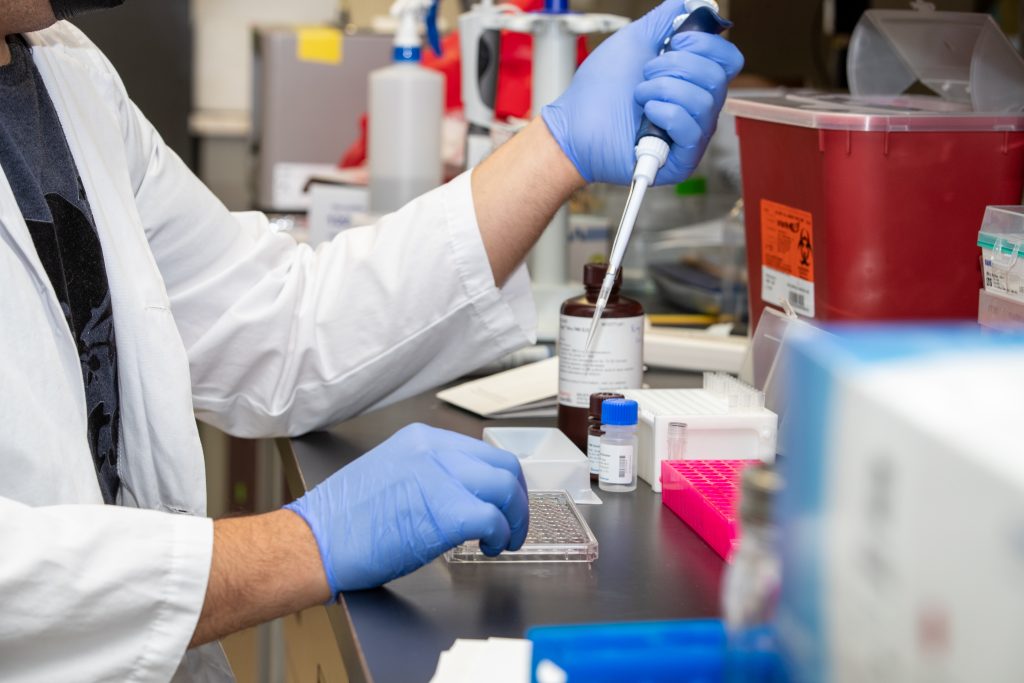
Undergraduate Journeys
These testimonials highlight the various paths taken by undergrad students to engage in research, emphasizing that there’s no one-size-fits-all approach. Discover the wide range of research opportunities within the Faculty of Science and how these experiences have enriched the personal and academic growth of these students.
Information Box Group
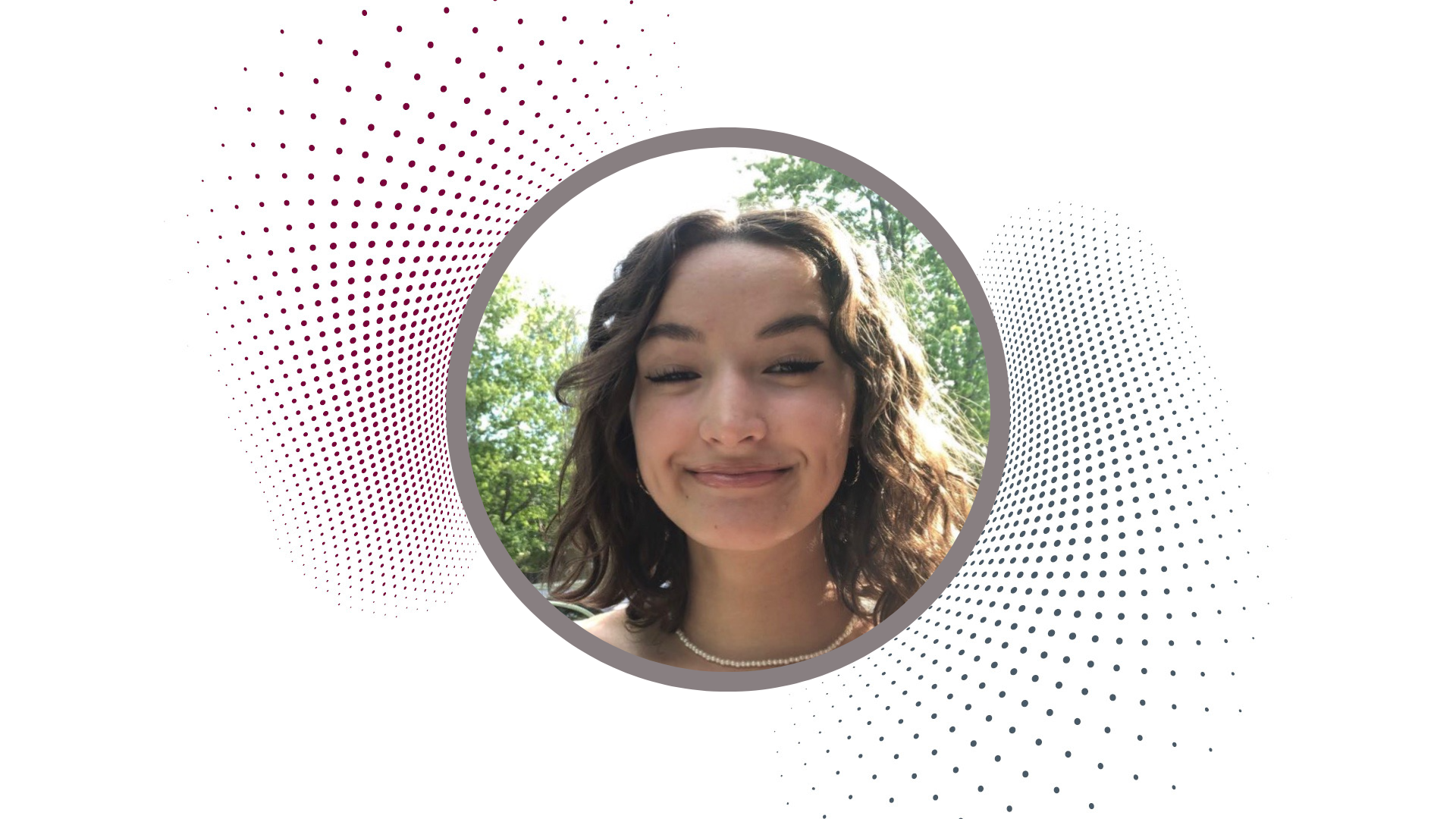
I would never have known my interest (...) without getting experience from different labs and learning what I enjoy doing the most
Katriel Read '23
Honours Kinesiology - Level IV

Naomi Geller '23
Honours Psychology, Neuroscience & Behaviour - Level IV
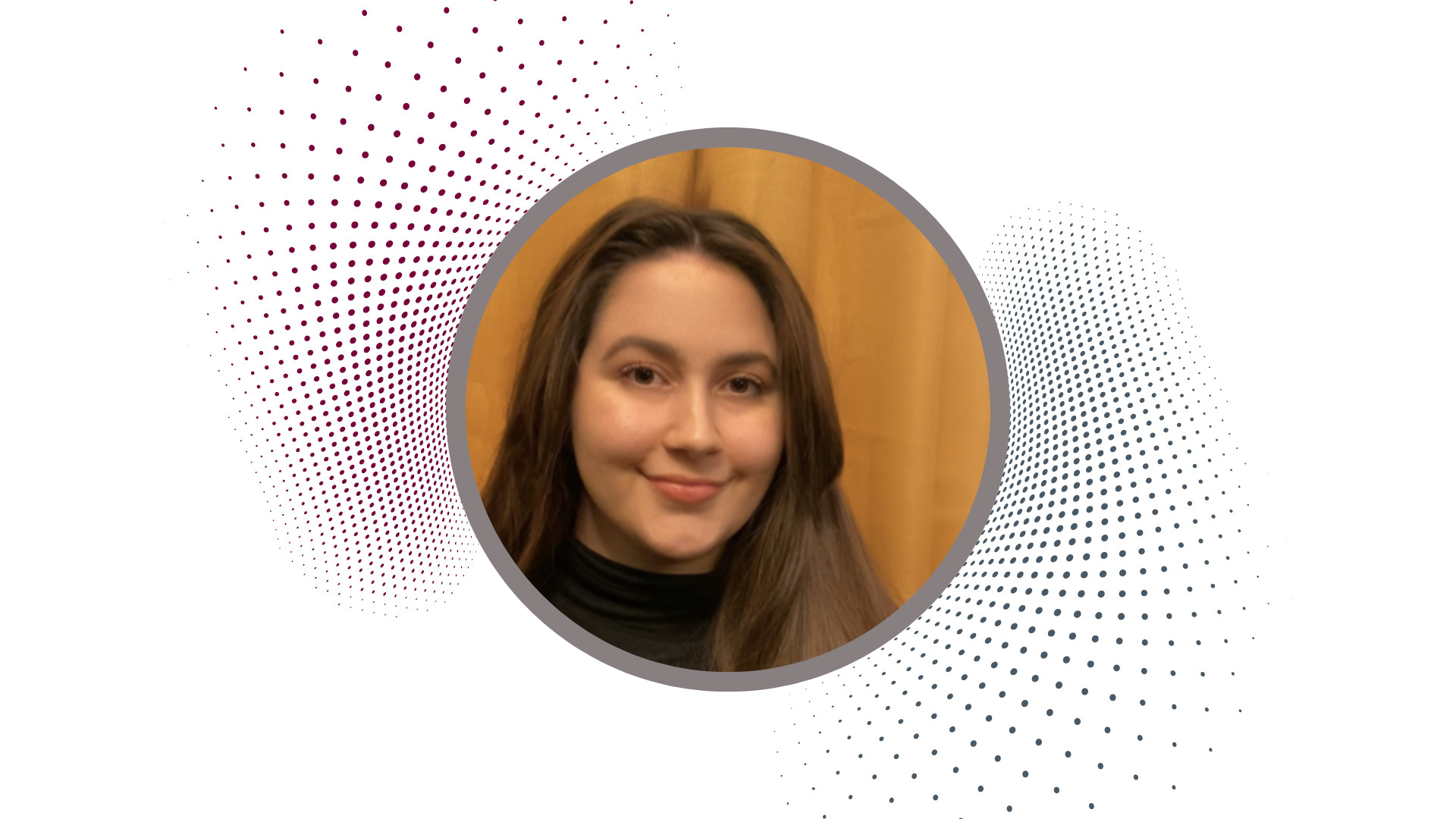
Abigail Amos '23
Honours Environment & Society - Level IV
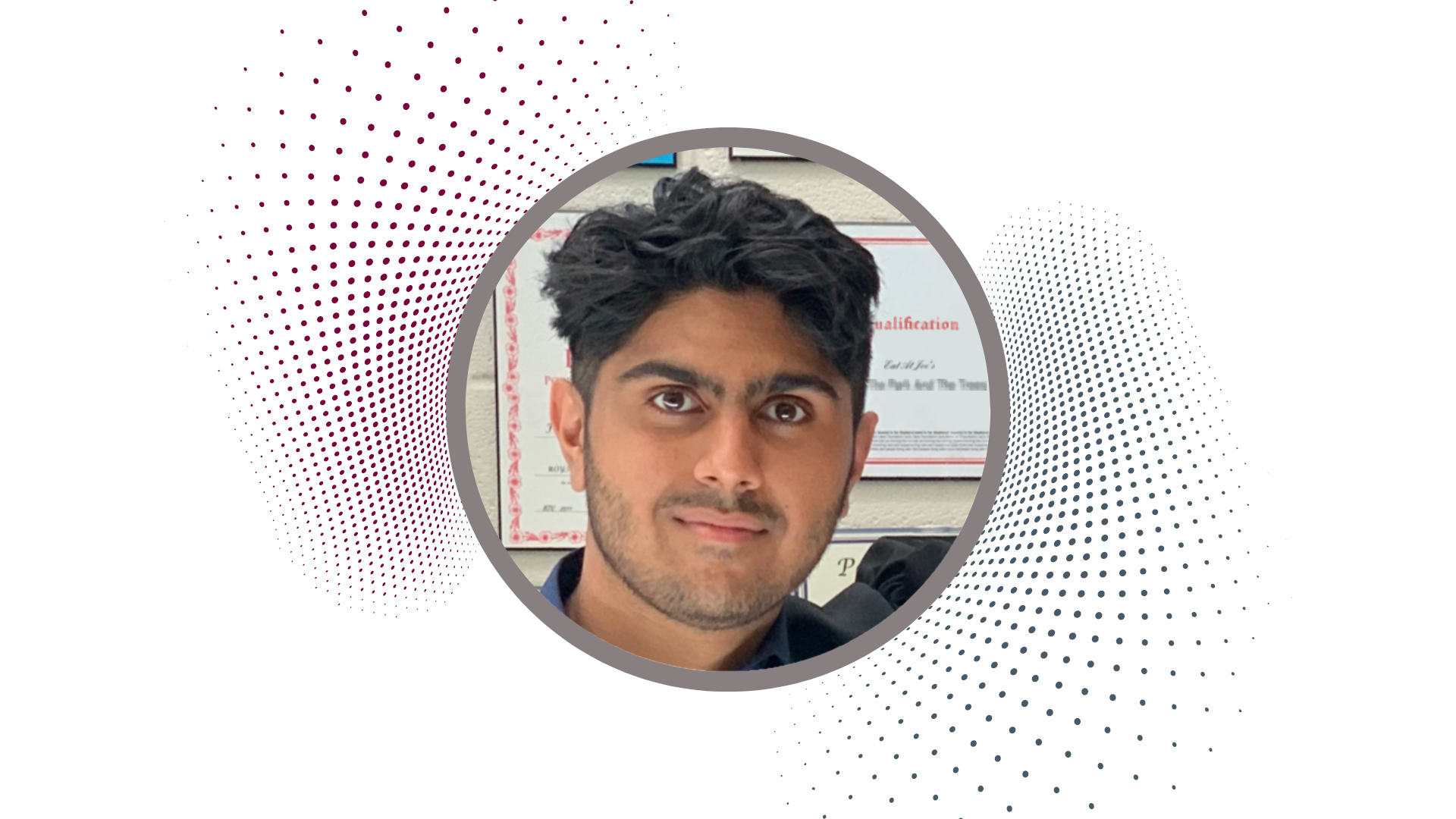
Sufyan Rather '23
Honours Life Sciences - Level IV

Jasmin Dhanoa '23
Honours Life Sciences - Level IV
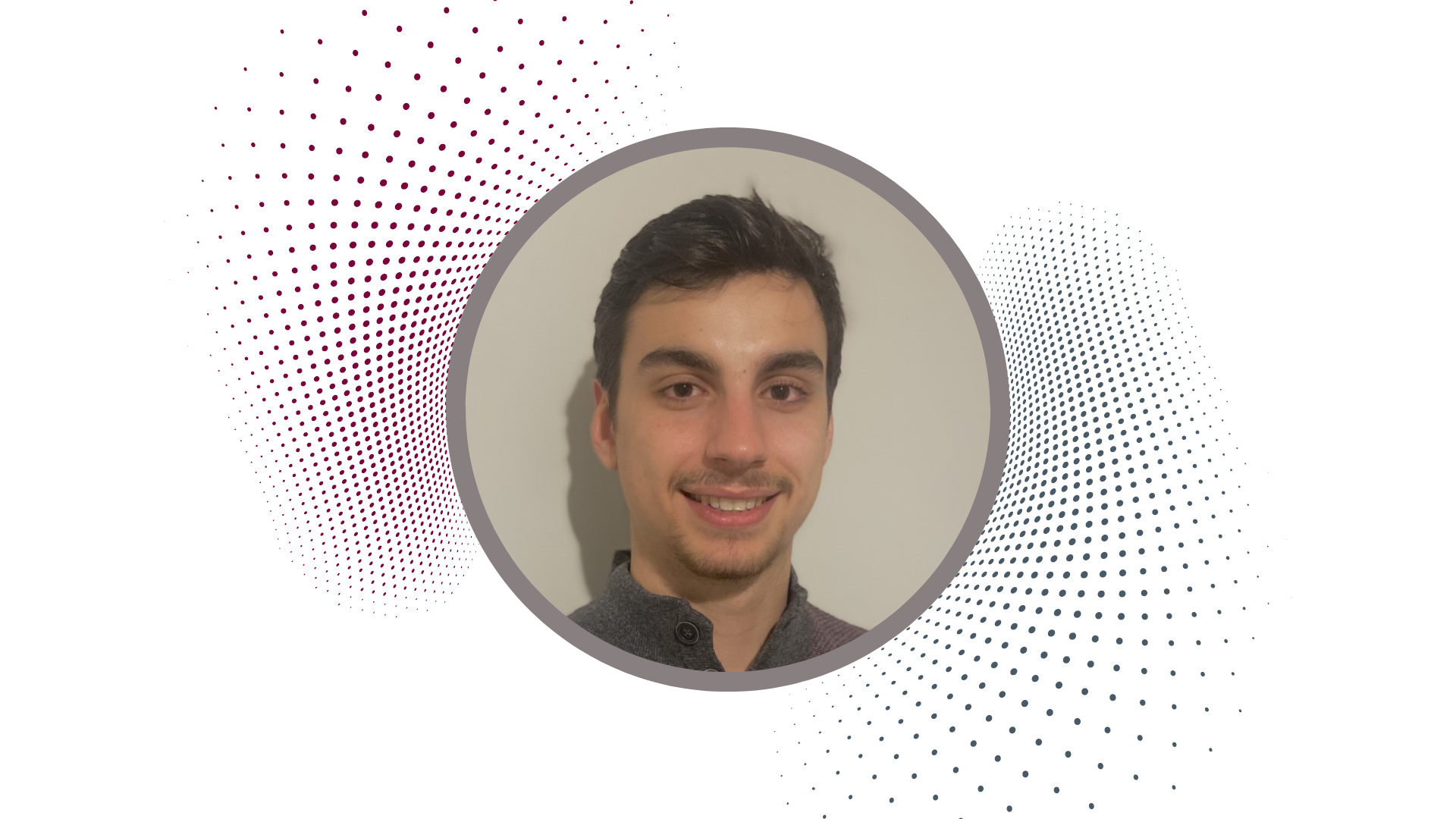
Jonathan Nichilo '23
Honours Life Sciences - Level IV
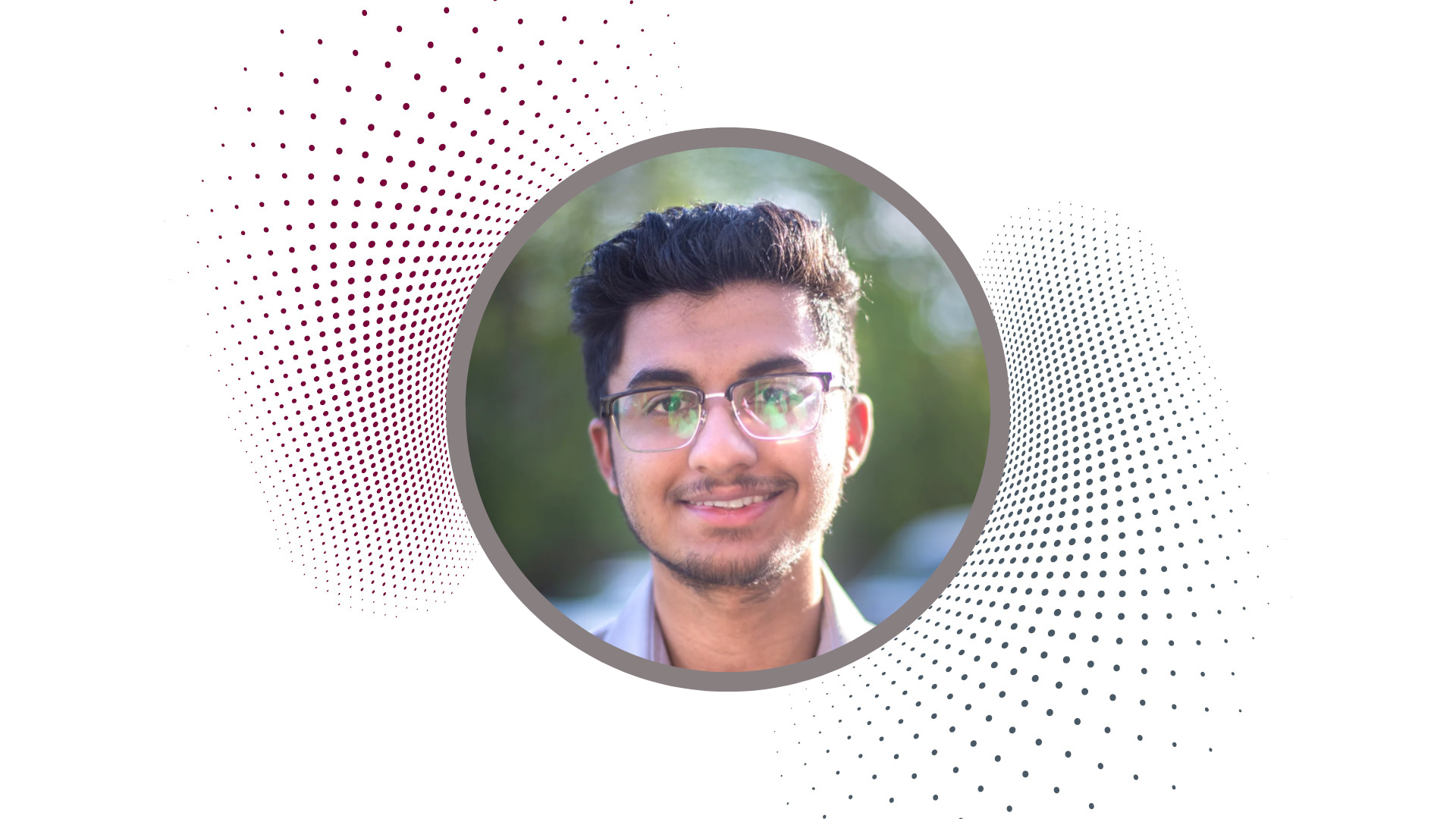
Omar Shahid '23
Honours Life Sciences - Level IV

I would never have known my interest (...) without getting experience from different labs and learning what I enjoy doing the most
Katriel Read
Honours Kinesiology - Level IV

I believe there is something all people can learn from research because research is more than just collecting data!
Naomi Geller is a fourth-year student in the Psychology, Neuroscience and Behavior program at Mcmaster University. She was drawn to research in psychology due to her IntroPsych course where she occasionally reviewed scientific literature and experiments. This sparked her interest in psychology, and her eventual journey in research.
Her journey in research began when she decided to do an independent study course (3QQ3) in the Baby Lab under the supervision of Dr. Xiao in her third year. During this time, she worked closely with a PhD student who taught her the foundation of all things research; such as coding, eye tracking, and participant-experimenter relations. Through this experience, she learned that she was passionate about exploring how emotional interactions guide visual and auditory preferences in infants, and hence in fourth year she continued in the Baby Lab to do her thesis.
While Naomi experienced some challenges in trying to cold email professors, she expressed the importance to continue persevering and being confident in the emails she sent to researchers. Through her determination, she did in fact find a lab that aligned with her interests.
Through her research experience, Naomi has acquired numerous skills such as practical research skills as well as interpersonal and leadership skills. She has learned how to code research, use eye tracking and standardize audio files, as well as how to lead a team and create professional participant-researcher relationships. In addition to skills, her current thesis research on auditory processing, has inspired her to pursue a career in speech – language pathology.
Advice:
“I would first like to say congratulations on realizing you would like to do research! Go to the website of the department you intend to work with and search for faculty members’ research interests and email as many as you want. One conversation with a knowledgeable person in your field may take you a long way!”
Naomi Geller
Honours Psychology, Neuroscience & Behaviour - Level IV

I wanted to walk away from my undergraduate degree feeling as though I developed my skills and knowledge
Abigail Amos is a fourth year student in the Environment and Society program at McMaster University. She drawn to McMaster by the university’s emphasis on research and the opportunity to learn from leading professionals in their fields. The interaction between people and space has been a prominent focus throughout her undergraduate career, including various topics relating to the construction of society.
Her current research projects are all based on human geography. Abigail’s undergraduate thesis is under the supervision of Dr. Rob Wilton, focusing on the geography of non-human healthcare in Toronto. She also completed an independent study under the supervision of Dr. Bruce Newbold, exploring barriers to healthcare access for refugees in Canada. Additionally, her second independent study is being supervised by Dr. Melanie Bedore on the structure of food charity in the USA.
Abigail knew for years that she wanted to complete a thesis, following the resources and information shared by Dr. Michael Mercier in SEES. While she experienced some challenges in the logistical aspects of securing a project, she expressed the importance of continuing to search for a project that she could apply her skillset to, and ultimately was successful in securing a research project that best fit her needs.
Through her research experience, she has acquired numerous skills in quantitative and qualitative skills, as well as writing and phone interviewing skills, all contributing to effective communication and data consolidation. Abigail has accepted an offer to stay at McMaster to complete a Master of Arts in Geography and is considering pursuing a Ph.D. or working in municipal community planning to make effective improvements. She credits her supervisors for shaping her confidence in her abilities and improving her skills through their support.
Advice:
“The biggest advice I would have is to put yourself out there and walk into every room with your head high. You’re selected for opportunities because you were the best candidate. For those still looking for research opportunities, the right fit will come, so just have faith in yourself. We put an extreme amount of pressure on ourselves as students and researchers, and it’s important to treat ourselves with kindness. Meet yourself where you are, celebrate the small wins, and be kind about any missteps.”
Abigail Amos
Honours Environment & Society - Level IV

When I spoke to researchers who exuded such passion from their talks (...) I had no choice but to take part in research myself
Sufyan Rather is a fourth-year Honours Life Sciences student at a prestigious university. His current research is focused on infectious diseases, specifically fungal epidemiology. Driven by a strong interest in research, Sufyan was drawn to the field of infectious diseases due to its unique challenges and the opportunity to make a significant impact on society.
In the beginning, Sufyan faced challenges when searching for research positions, but his unwavering passion for learning and his ability to critically evaluate sources of bias ultimately led him to find the right supervisor and project. He has acquired a variety of valuable skills through his research experience, such as reading efficiency and the ability to critically evaluate sources of bias. Working with his supervisor has also influenced his future goals, as he now aspires to pursue a career that encompasses topic diversity and makes a significant impact on society.
Sufyan’s work in infectious diseases is particularly relevant in the current global pandemic, as he investigates the surge of fungal infections in COVID patients in Southeast Asia. His research is contributing to a better understanding of this issue and will likely have a significant impact on the medical field. Sufyan is a passionate and dedicated student who has the potential to make a significant contribution to society through his research.
Advice:
“Discover your passion and pursue it without any expectations. Your fundamental interest in a topic will help you when things fall apart. When you approach a supervisor with this mindset, you will always have plenty to talk about and naturally gain the necessary skills for your field.”
Sufyan Rather
Honours Life Sciences - Level IV

I would like to break the stereotype of the typical scientist
Jasmin Dhanoa is a Level IV Honours Life Sciences student in the Faculty of Science at McMaster University. Her research area is in science communication, and she is supervised by Dr. Katie Moisse. Jasmin’s thesis project investigates gender and racial bias in the representation of COVID-19 scientific experts in the media. She compares the race and gender of researchers from the top ten research-intensive universities in Canada, the United States of America, and the United Kingdom, and compares these figures to the researchers mentioned in the top media outlets in these countries. Through her project, Jasmin hopes to break the stereotype of the typical scientist and highlight the importance of proper representation of scientists in the field and in the media.
Through her research experience, Jasmin has gained communication, critical thinking, and teamwork skills. She has also become more interested in research and is considering graduate school to pursue science communication and pedagogical research.
Advice:
Jasmin’s advice to science students searching for research positions is to keep trying and be resilient, and to start searching for research positions a year in advance.
“During the research position, I would encourage students to be curious, explore their interests, and don’t be afraid of changes to the research. As students we often think that the research question we start out with will remain the same throughout the research process, but research questions change, new variables are explored, and this all adds to the learning experience!”
Jasmin Dhanoa
Honours Life Sciences - Level IV

I overcame (...) obstacles by staying true to my passions and expressing my interests
Jonathan Nichilo is a Level IV Honours Life Sciences student at McMaster University, currently studying for his Bachelor of Science with a minor in Biochemistry and a concurrent certificate of immunology, microbiology, and virology. Jonathan’s research is in the field of allergy and clinical immunology under the supervision of Dr. Jason Ohayon and Dr. Gail Gauvreau. His personal experiences with food allergy motivated his interests in allergy research.
Jonathan’s research focuses on IgE-mediated allergic reactions, especially in food allergy and asthma. In his clinical research position, he aims to understand food allergy knowledge and awareness in food allergic individuals and their caregivers. In his thesis position, Jonathan investigates the reproducibility of asthmatic endpoints between two allergen challenges to determine if methodologies within the lab are reproducible and can be used to establish the efficacy of a candidate asthma drug. Jonathan’s research experience has strengthened his critical thinking, problem-solving, and communication skills. His research has also reinforced his passion to become a physician or work in the clinical atmosphere.
Advice:
“My advice for science students seeking research positions: explore new areas, but pursue passions if strong; professors/supervisors aren’t intimidating and love to talk about research; be curious and ask questions in the lab.”
Jonathan Nichilo
Honours Life Sciences - Level IV

I had a chance to see science in a different way, a way that felt more relatable, engaging, and active
Omar Shahid is a fourth-year Honours Life Sciences student at McMaster University, specializing in Science Communication. He is working with Dr. Katie Moisse in the School of Interdisciplinary Science to investigate open-access science research and its accessibility to lay audiences. Specifically, he is exploring the quality of lay summaries and how it influences reader comprehension and perceptions towards science.
Omar’s interest in research was sparked during the COVID-19 pandemic when he had the opportunity to virtually volunteer as a research assistant in two clinical trials. Despite facing challenges in the beginning when searching for research positions, he built the courage to cold-email researchers and speak with professors in their office hours. His research experience has helped him develop skills in public speaking, managing and balancing priorities, and facing uncertainty. Overall, his work in research has influenced his future goals by building his interest in pursuing a career in medicine, where communication and curiosity are vital.
Advice:
“Networking is crucial when searching for research opportunities. Don’t be afraid to approach peers or professors whose work aligns with your interests. Remember that everyone is approachable if you give them a chance to get to know you. Effort and consistency will always pay off, so keep pushing yourself to interact with others outside the classroom.”
Omar Shahid
Honours Life Sciences - Level IV
Alumni Journeys
The Office of Undergraduate Research (OUR) is dedicated to sharing the unique and diverse stories of students who have ventured into exciting research journeys during their undergraduate years and are now flourishing in the workfield.
Information Box Group
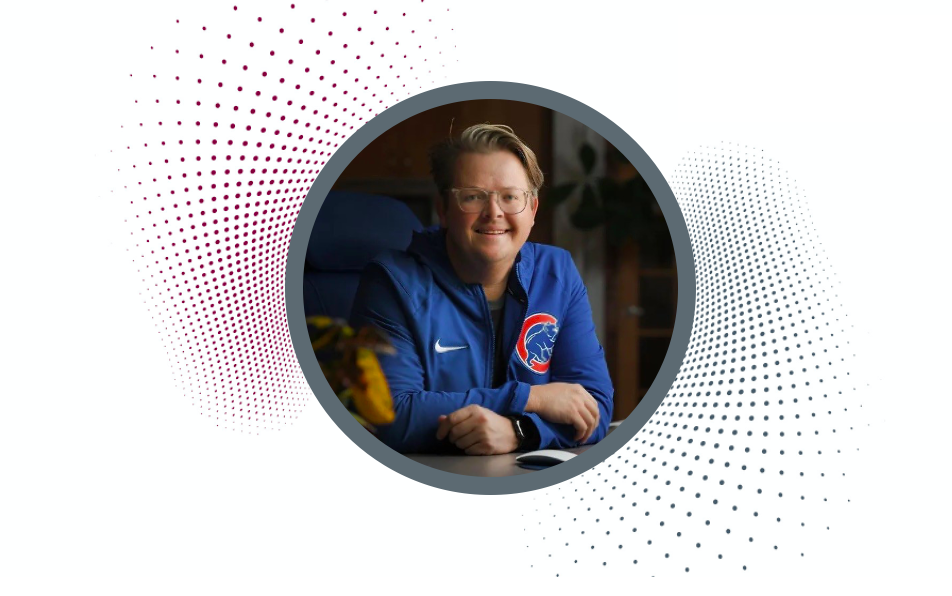
Talk to your professors and even more so, your teaching assistants about the research they are doing. People are VERY passionate about what they study.
Once I started the Human Kinetics program at the University of Windsor, I immediately applied to get into the Co-Op stream so I could gain work experience while I studied. I was always a hard worker, and felt that I did a great job of understanding concepts – but I needed to see things in action before it all clicked. I worked primarily with athletic therapy and ergonomics, so had a good variety of experience.
By the time I got to my fourth year, I was ready to head into the working world. I left school and worked in ergonomics consulting for the better part of 2 years – but I found everyone I worked for had a Master’s degree. I decided to return to Windsor for my Masters. A unique part of the Windsor program was the internship component – and because of my working experience, I felt this was the best choice for me. In my internship, I had to complete work experiences, but at the same time do a research project that tied academics back to the workplace. During this process, I learned just how much I loved conducting research.
While I worked, I conducted close to 600 office ergonomic assessments – a process that didn’t have much in the way of standardisation or quantification of risk. During my internship, I created an office ergonomics assessment tool to give ergonomists a better idea of how much risk there was in an office. This paper eventually was published in a prestigious ergonomics journal, and was in the top 10 of most downloaded papers of the year. More importantly, this was what told me that research was what I wanted to do for my career. I immediately enrolled in the thesis component of the University of Windsor MHK degree, continuing to work on this office ergonomics assessment method, before applying and being accepted into the PhD program at McMaster University.
My research has always been applied in nature – my PhD was funded by the automotive industry – but I was able to do both field and lab research to work on my degree and solve problems related to muscle fatigue. All the while, I felt that conducting research and viewing problems in a systematic manner helped me succeed as a student, but also as a teacher. While I didn’t have the opportunity to get involved in research as an undergraduate student, getting involved in a lab, or doing an undergraduate thesis can be such a helpful way to understand why things happen, and more importantly, how to answer that question of why. Constantly pursuing why has led me from ergonomics, to workplace organisation, all the way to baseball.
My advice:
Talk to your professors and even more so, your teaching assistants about the research they are doing. People are VERY passionate about what they study, and you can get some great ideas as to why they feel so strongly about their field. That extra bit of passion can help you with understanding course topics and how to better comprehend problems.
Michael Sonne
Kinesiology
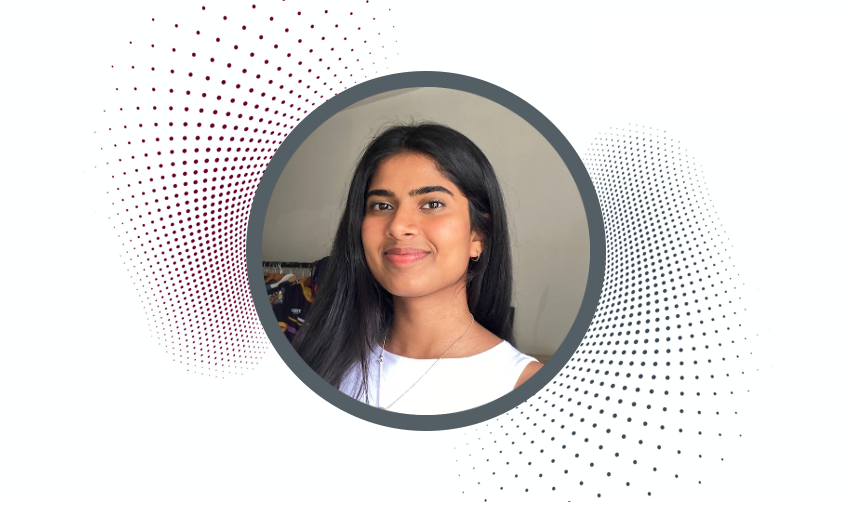
Many scientists are inspired by events that occurr to them during their daily life! Make sure your existence is meaningful to you, and the right path will fall into place.
Gurleen started her academic journey with a degree in Honours Physics from McMaster University in 2022. She then continued onwards to do a dual MSc. focusing on Chemistry and Materials Science in both France and Germany. She was able to do this through the AMIR (Advanced Materials Innovative Recycling) program offered by the European Institute of Technology.
Pursuing this field of study was important to her because she always wanted a way to combine her passions for both physics and the environment. Through this program, Gurleen is learning about and conducting research on the design and recycling of lithium-ion batteries. She garnered interest on this topic in 2021, when she completed a USRA supported summer research project with Dr. Alannah Hallas at the University of British Columbia. There she was able to first learn about the research behind batteries and completed her project on how to create a phase pure sample of LiNiO2, a potential cathode material. Through the guidance provided by her mentor Alannah, Gurleen was able to identify a specific field where she could use her physics knowledge, along with working towards sustainability – battery research.
In the past year Gurleen completed a project on the recycling of lithium from black mass (the crushed end-product of batteries) and was able to learn about the upcoming importance of this research as millions of batteries from electric cars will need to be revaluated for their performance as the battery degrades and needs to be replaced. She is now focused on finding more projects related to this subject, and thoroughly enjoys her study!
Although this isn’t a typical path for students who study physics, it is definitely suited for them. The field of solid-state physics is one where you can learn about materials and branch out into this particular field Gurleen studies. Most of the characterization, data analysis, and principles of study are based on concepts learned during her bachelor, so it is a place where the perspective and logic of physicists is valuable. By having the courage and initiative to seek out where you belong is how Gurleen is doing what she loves now.
Advice:
Gurleen says to truly find what you are passionate about, take time to self-reflect. Observe how you think and feel about certain subjects, how you like to spend your time (perhaps you like cooking, or playing sports), and learn about yourself first. Many scientists are inspired by events that occurr to them during their daily life! Make sure your existence is meaningful to you, and the right path will fall into place.
Gurleen Sandhu
Physics & Astronomy
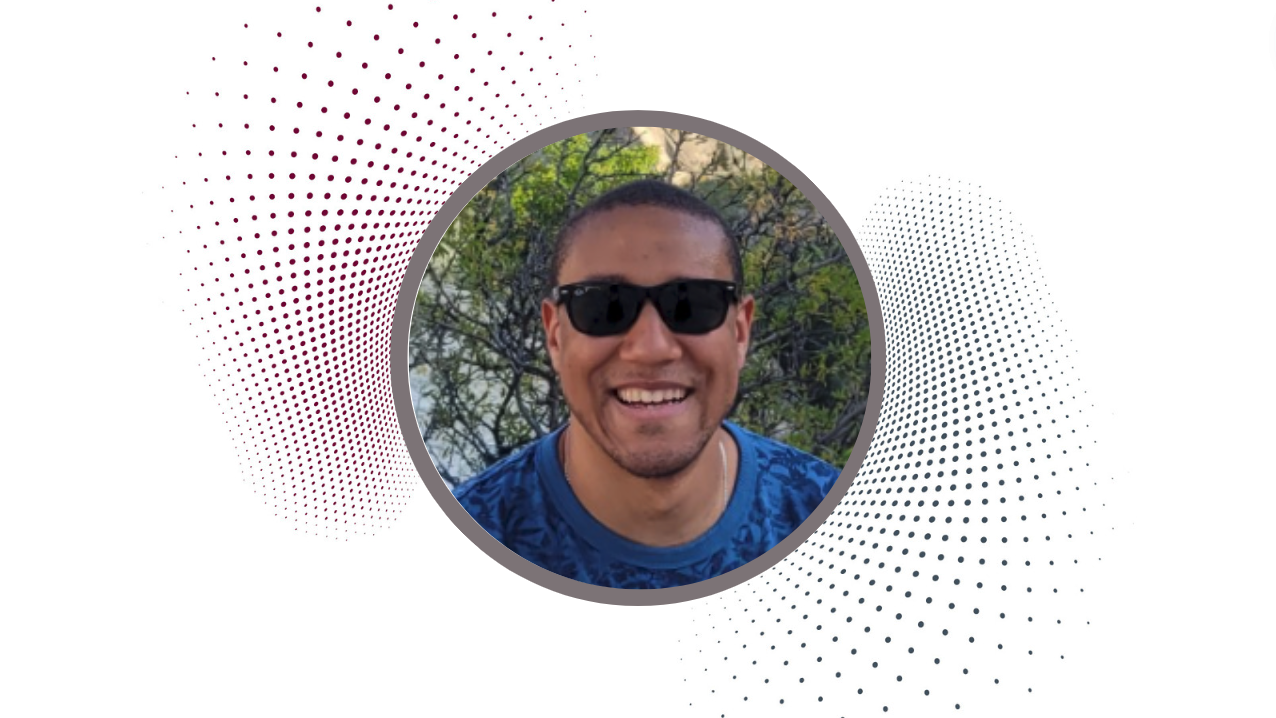
Sulayman Lyons '22
Biology - Physiology Specialization and PhD Program - Biology

The experiences you gain [doing research] can be applied to other aspects of your life or future careers as well, whether that be in research, industry, teaching...
Lyons started his academic journey with a degree in Honours Biology (Physiology Specialization) and a minor in Psychology. He then entered the MSc program in McMaster, and later transferred and completed his PhD in Biology in 2022.
He became interested in how research was performed to solve complex questions after a course in. physiology. This motivated him to volunteer in a lab to gain research experience and he ended up completing a 4th year thesis project with Dr. Graham Scott, solidifying my passion for research.
Once he completed his 4th-year thesis project, he realized his passion for a research career in the field of energy metabolism. He took the initiative to explore professors from various universities who aligned with his interests. By reaching out to them, he inquired about their research projects and lab techniques. Among them, Dr. Grant McClelland’s research stood out the most, and together, they devised an exciting research project. Through this journey, he found himself in an enjoyable lab environment with incredible colleagues and mentors. The opportunity to present his research to both local and international audiences added to his excitement. These experiences solidified his desire to pursue an academic career, leading him to transition from the Master’s program to the PhD program.
After earning his PhD, Sulayman sought research opportunities in a different field, specifically biomedical, to explore new challenges beyond his undergraduate and graduate studies. He discovered Dr. Jacqueline Beaudry, his current postdoctoral fellowship (PDF) supervisor at the University of Toronto, by reading about her research. He took the initiative to email her to inquire about job openings, and luckily, she granted him an interview. Sulayman also had the chance to visit Dr. Beaudry’s lab and meet her students, which allowed him to get a sense of the lab environment – an experience he thoroughly enjoyed!
Advice:
Sulayman’s advice to undergraduates interested in research is to read up on topics they find intriguing, seek out professors with similar research interests, and inquire about opportunities to get involved. Additionally, he encourages using support systems, including hobbies, to cope with overwhelming feelings and maintain focus.
Sulayman Lyons
Biology - Physiology Specialization and PhD Program - Biology

Talk to your professors and even more so, your teaching assistants about the research they are doing. People are VERY passionate about what they study.
Once I started the Human Kinetics program at the University of Windsor, I immediately applied to get into the Co-Op stream so I could gain work experience while I studied. I was always a hard worker, and felt that I did a great job of understanding concepts – but I needed to see things in action before it all clicked. I worked primarily with athletic therapy and ergonomics, so had a good variety of experience.
By the time I got to my fourth year, I was ready to head into the working world. I left school and worked in ergonomics consulting for the better part of 2 years – but I found everyone I worked for had a Master’s degree. I decided to return to Windsor for my Masters. A unique part of the Windsor program was the internship component – and because of my working experience, I felt this was the best choice for me. In my internship, I had to complete work experiences, but at the same time do a research project that tied academics back to the workplace. During this process, I learned just how much I loved conducting research.
While I worked, I conducted close to 600 office ergonomic assessments – a process that didn’t have much in the way of standardisation or quantification of risk. During my internship, I created an office ergonomics assessment tool to give ergonomists a better idea of how much risk there was in an office. This paper eventually was published in a prestigious ergonomics journal, and was in the top 10 of most downloaded papers of the year. More importantly, this was what told me that research was what I wanted to do for my career. I immediately enrolled in the thesis component of the University of Windsor MHK degree, continuing to work on this office ergonomics assessment method, before applying and being accepted into the PhD program at McMaster University.
My research has always been applied in nature – my PhD was funded by the automotive industry – but I was able to do both field and lab research to work on my degree and solve problems related to muscle fatigue. All the while, I felt that conducting research and viewing problems in a systematic manner helped me succeed as a student, but also as a teacher. While I didn’t have the opportunity to get involved in research as an undergraduate student, getting involved in a lab, or doing an undergraduate thesis can be such a helpful way to understand why things happen, and more importantly, how to answer that question of why. Constantly pursuing why has led me from ergonomics, to workplace organisation, all the way to baseball.
My advice:
Talk to your professors and even more so, your teaching assistants about the research they are doing. People are VERY passionate about what they study, and you can get some great ideas as to why they feel so strongly about their field. That extra bit of passion can help you with understanding course topics and how to better comprehend problems.
Michael Sonne
Kinesiology

Many scientists are inspired by events that occurr to them during their daily life! Make sure your existence is meaningful to you, and the right path will fall into place.
Gurleen started her academic journey with a degree in Honours Physics from McMaster University in 2022. She then continued onwards to do a dual MSc. focusing on Chemistry and Materials Science in both France and Germany. She was able to do this through the AMIR (Advanced Materials Innovative Recycling) program offered by the European Institute of Technology.
Pursuing this field of study was important to her because she always wanted a way to combine her passions for both physics and the environment. Through this program, Gurleen is learning about and conducting research on the design and recycling of lithium-ion batteries. She garnered interest on this topic in 2021, when she completed a USRA supported summer research project with Dr. Alannah Hallas at the University of British Columbia. There she was able to first learn about the research behind batteries and completed her project on how to create a phase pure sample of LiNiO2, a potential cathode material. Through the guidance provided by her mentor Alannah, Gurleen was able to identify a specific field where she could use her physics knowledge, along with working towards sustainability – battery research.
In the past year Gurleen completed a project on the recycling of lithium from black mass (the crushed end-product of batteries) and was able to learn about the upcoming importance of this research as millions of batteries from electric cars will need to be revaluated for their performance as the battery degrades and needs to be replaced. She is now focused on finding more projects related to this subject, and thoroughly enjoys her study!
Although this isn’t a typical path for students who study physics, it is definitely suited for them. The field of solid-state physics is one where you can learn about materials and branch out into this particular field Gurleen studies. Most of the characterization, data analysis, and principles of study are based on concepts learned during her bachelor, so it is a place where the perspective and logic of physicists is valuable. By having the courage and initiative to seek out where you belong is how Gurleen is doing what she loves now.
Advice:
Gurleen says to truly find what you are passionate about, take time to self-reflect. Observe how you think and feel about certain subjects, how you like to spend your time (perhaps you like cooking, or playing sports), and learn about yourself first. Many scientists are inspired by events that occurr to them during their daily life! Make sure your existence is meaningful to you, and the right path will fall into place.
Gurleen Sandhu
Physics & Astronomy

The experiences you gain [doing research] can be applied to other aspects of your life or future careers as well, whether that be in research, industry, teaching...
Lyons started his academic journey with a degree in Honours Biology (Physiology Specialization) and a minor in Psychology. He then entered the MSc program in McMaster, and later transferred and completed his PhD in Biology in 2022.
He became interested in how research was performed to solve complex questions after a course in. physiology. This motivated him to volunteer in a lab to gain research experience and he ended up completing a 4th year thesis project with Dr. Graham Scott, solidifying my passion for research.
Once he completed his 4th-year thesis project, he realized his passion for a research career in the field of energy metabolism. He took the initiative to explore professors from various universities who aligned with his interests. By reaching out to them, he inquired about their research projects and lab techniques. Among them, Dr. Grant McClelland’s research stood out the most, and together, they devised an exciting research project. Through this journey, he found himself in an enjoyable lab environment with incredible colleagues and mentors. The opportunity to present his research to both local and international audiences added to his excitement. These experiences solidified his desire to pursue an academic career, leading him to transition from the Master’s program to the PhD program.
After earning his PhD, Sulayman sought research opportunities in a different field, specifically biomedical, to explore new challenges beyond his undergraduate and graduate studies. He discovered Dr. Jacqueline Beaudry, his current postdoctoral fellowship (PDF) supervisor at the University of Toronto, by reading about her research. He took the initiative to email her to inquire about job openings, and luckily, she granted him an interview. Sulayman also had the chance to visit Dr. Beaudry’s lab and meet her students, which allowed him to get a sense of the lab environment – an experience he thoroughly enjoyed!
Advice:
Sulayman’s advice to undergraduates interested in research is to read up on topics they find intriguing, seek out professors with similar research interests, and inquire about opportunities to get involved. Additionally, he encourages using support systems, including hobbies, to cope with overwhelming feelings and maintain focus.
Sulayman Lyons
Biology - Physiology Specialization and PhD Program - Biology
Information Box Group
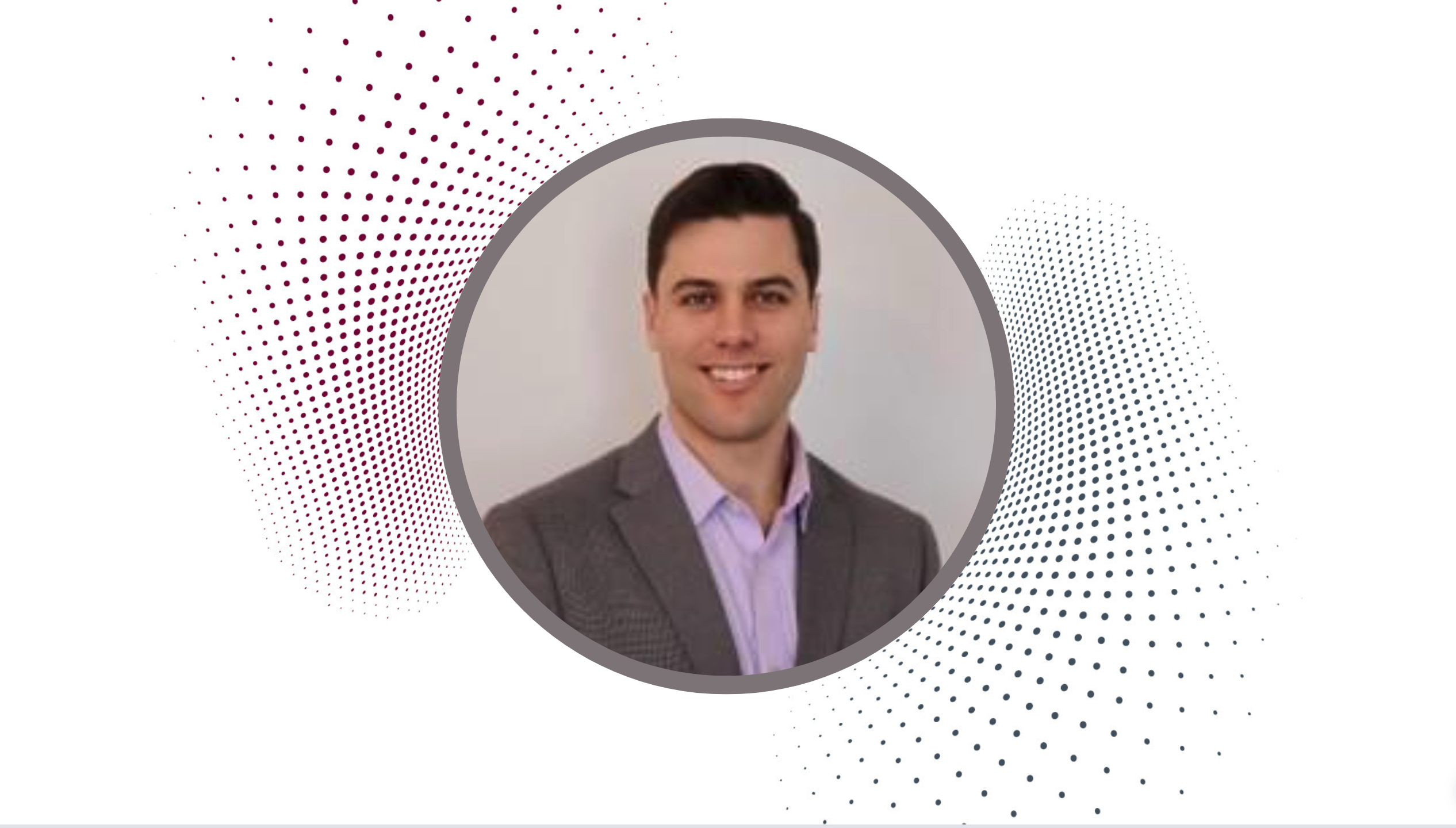
Entering the workforce was eye-opening simply because the world of research you thought you knew was more profound in terms of impact and applications than I had previously imagined.
Taylor Brooks is a 2017 Mount Allison University graduate. During his time at university, he was not in an Honours program, but did conduct three separate independant research projects. He was able to establish fundamental lab skills and a better understanding of basic research by conducting small scope research projects for course credits. His research was in fields related to synthetic chemistry, microbiology, and physiology.
During his time doing research, he found the study of biochemical adaptation to stressors intriguing and gradually realized that he was acquiring valuable skills and knowledge applicable to the industry. Combining his interest in business with his scientific background, Taylor ventured into the commercial side of pharmaceutical manufacturing. He focused on mammalian cell culture products, including recombinant proteins, monoclonal antibodies, vaccines, viral vectors, and even lab-grown meat. His prior experience with mammalian cultures enabled him to excel in this field with bioprocess enabling technologies.
Taylor believes his undergraduate research experience opened up various opportunities, including potential paths for graduate studies. He discovered the growing trend of biomanufacturing for biologically-derived therapeutics and materials, particularly in North America, something he noticed occurring in McMaster Innovation Park.
Through his career journey, he honed essential skills in time management, project management, resourcefulness, and effective scientific communication. He also networked with alumni, enriching his understanding of research’s real-world impact.
Advice:
Taylor says “not everything you touch will lead to success but perseverance and a belief in yourself will take you far”.
Taylor believes the way we spend our days is the way we spend our life. He encourages students to enjoy their time and the people around them, saying that “the people I met at McMaster are some of the best friends I ever met.”
Taylor Brooks
Cellular Physiology
